Mosul: Have combat changes increased civilian casualties?
- Published
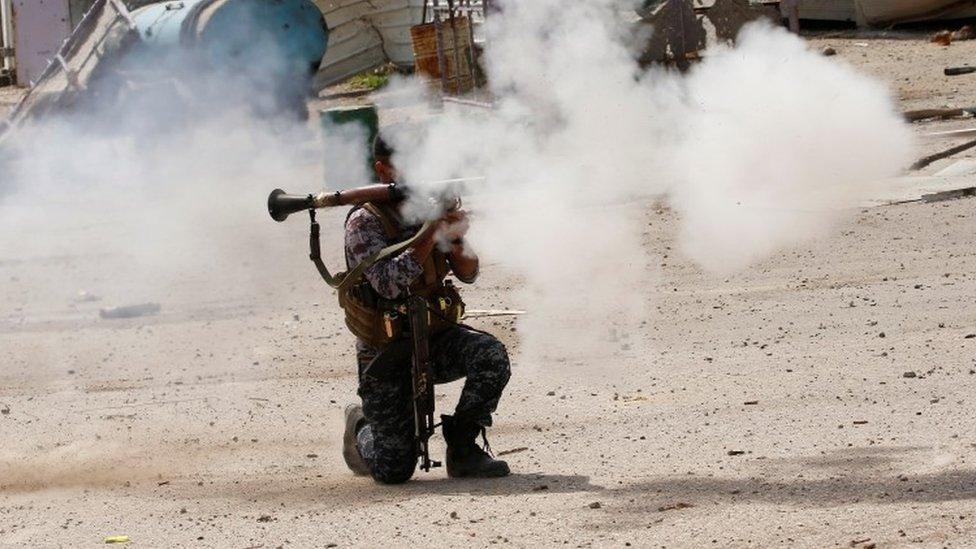
Mosul is a complex urban battlefield - with decisions on hitting specific targets needed in seconds
The civilian death toll has risen in Mosul as the battle to evict so-called Islamic State (IS) fighters from the western part of the city has intensified.
Some of the stories and eye-witness accounts are horrific. US General Stephen Townsend - who heads the campaign against IS - has described the fighting there as "the most significant urban combat to take place since World War Two".
Much of the attention is focussing on an episode in Mosul in which a strike on a building - which the US military authorities have now pretty well accepted that they hit - precipitated the collapse of the whole structure, with the loss of dozens or perhaps even hundreds of lives.
A senior US Air Force general has been put in charge of the inquiry into what happened and US personnel have visited the site to take samples. But already Gen Townsend has insisted that "the munition[s] that we used should not have collapsed an entire building".
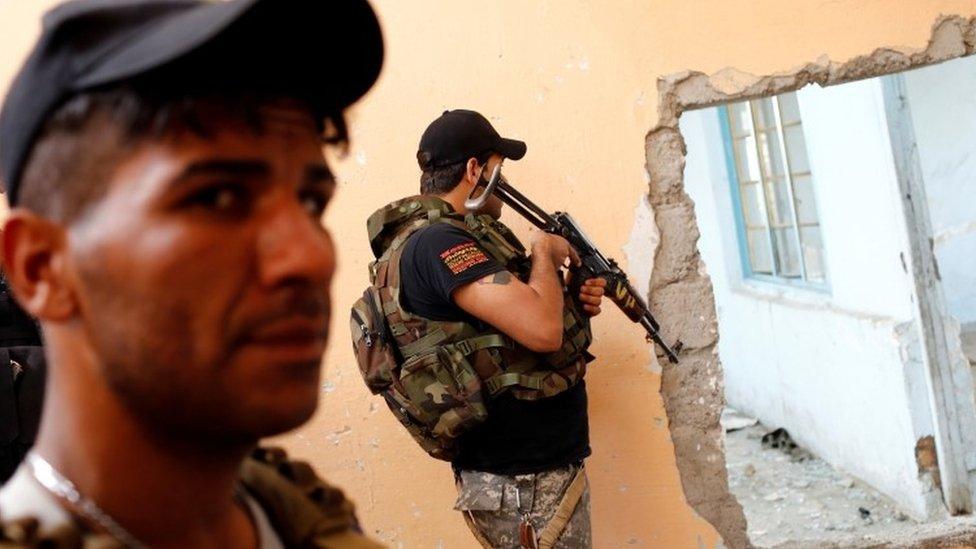
The conflict has moved into a closely-confined part of Mosul
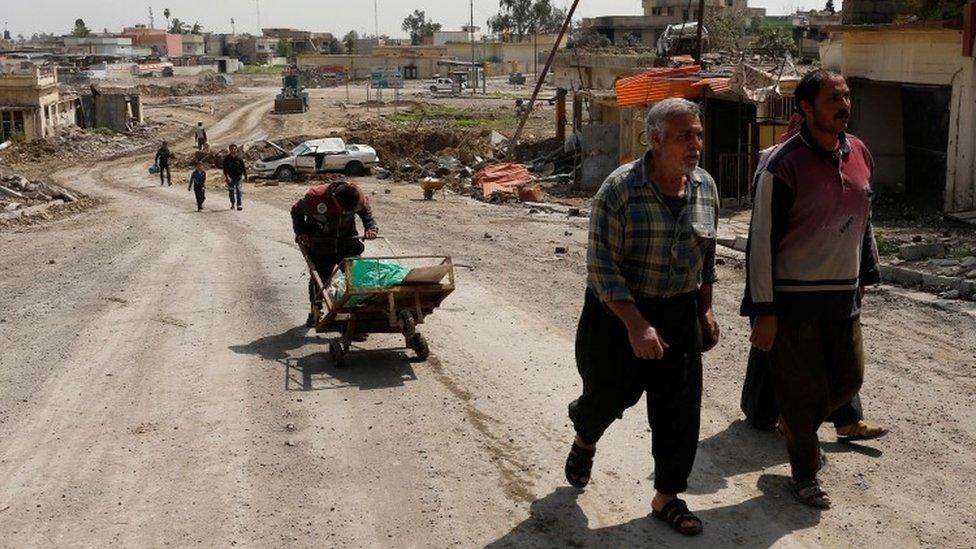
Civilians are trying to flee the fighting in Mosul
All sorts of theories are suggested as to what might have happened. Iraqi sources are quoted as saying that IS had gathered people together in the building as human shields. Maybe - as in other cases - the structure was rigged with explosives that were in turn detonated by the air strike.
Mosul battle: US 'may be responsible' for civilian deaths
Mosul Sunnis fear for the future
Mosul residents face impossible choice (video)
Battle for western Mosul will be toughest yet
As yet there is no adequate explanation of the cause of the tragedy or a reliable estimate of the death toll.
Some have pointed to a potential change in the US "rules of engagement", the strict criteria and procedures that govern the decision to strike any target.
It seems there have indeed been changes to these rules over recent months - described as "relatively minor" by senior US commanders.
These, it seems, are a reflection of the shift away from a defensive campaign to a more dynamic offensive battle.
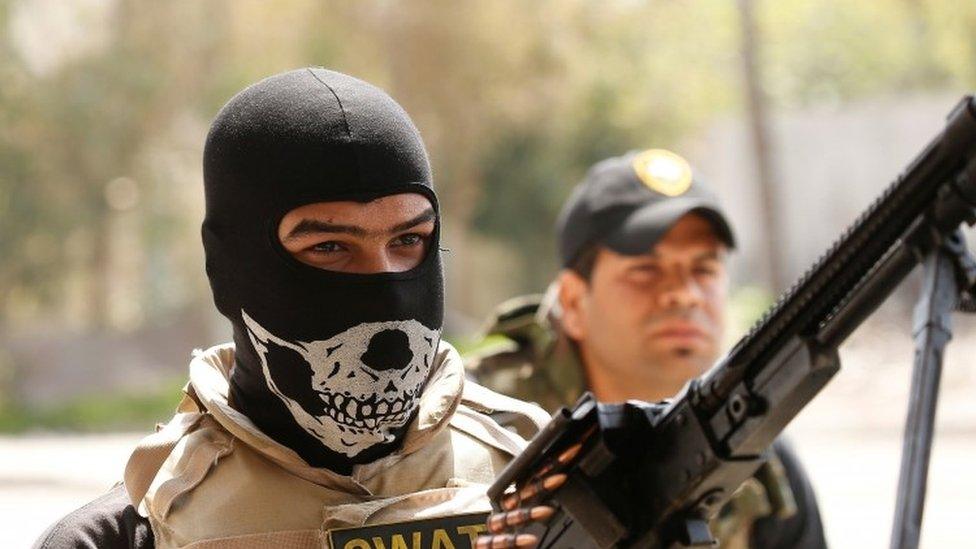
The US the and its Iraqi allies (above) have no alternative but to avoid civilian deaths as far as possible
US commanders insist that none of this has changed the "care or caution" with which combat power is applied.
But the spike in civilian deaths tells its own story. So is less care being taken with regard to civilian casualties?
And just what should the expectations be in this kind of conflict in a closely-confined area?
Here may be part of the answer to the conundrum.
I remember speaking to an expert from an NGO at the time of the Kosovo war who had become the leading authority on civilian deaths in air campaigns.
He acknowledged the huge efforts made to minimise unwanted casualties; but still the deaths occurred.
The obsession with the wizardry of precision-guided munitions and the all-embracing reassurance of strict rules of engagement all seemed to offer the prospect of an almost bloodless war, or, at the very least, one in which only "the bad guys" died.
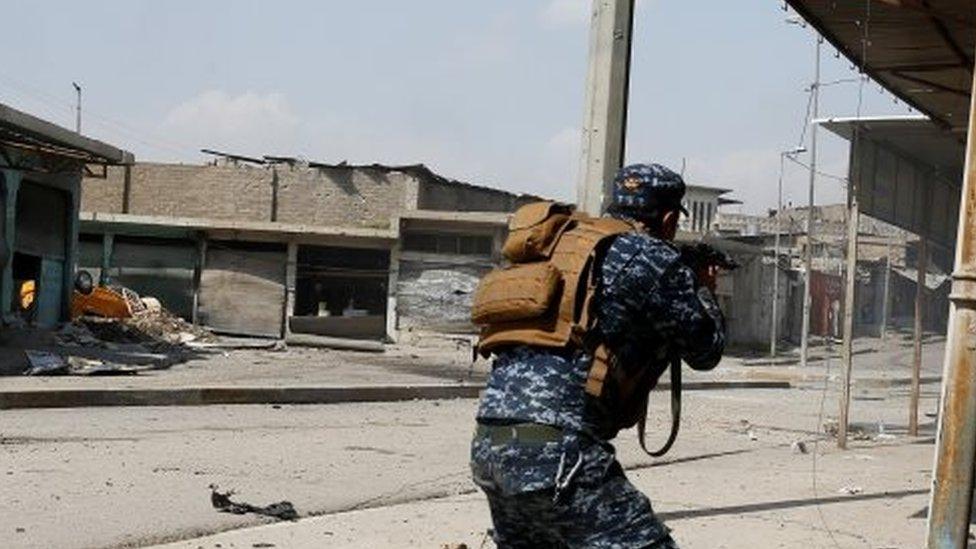
The technology and accuracy of modern air strikes is impressive. I remember too touring a site in the Kosovan capital Pristina with a Nato damage assessment team.
You could see holes punched in buildings - otherwise largely undamaged - where a specific room or sniper position had been destroyed. But things still go wrong.
In the same campaign there was an air strike on a telephone exchange where the bomb came off the aircraft a second or so too slowly and piled into a shopping area.
The reality is grim but simple. Unlike IS, which uses brutality as its means of holding a population in thrall, the US and its allies have no alternative but to avoid civilian deaths as far as possible.
These are, after all, the people whose trust the Iraqi government is going to have to win in the aftermath of the fighting.
But in a complex urban battlefield - with decisions on hitting specific targets needed in seconds - there are inevitably going to be unwanted civilian casualties.
It is surely right that the US should be held to the highest standards.
But war is and always will be a grim business. As the Confederate commander in the American Civil War General Robert E Lee noted after the carnage of the battle of Fredericksburg: "It is well that war is so terrible, or we should grow too fond of it."